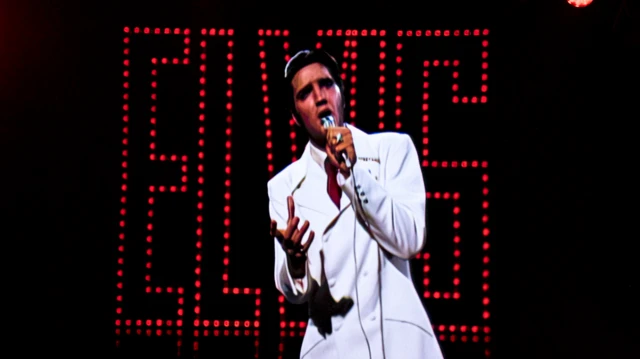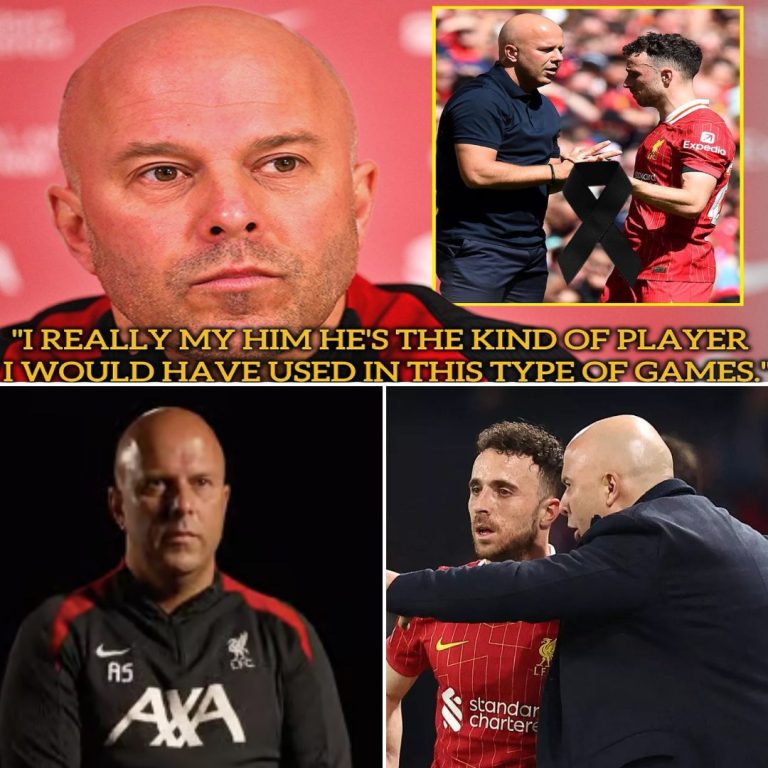The lights dimmed. The crowd hushed. And then—half a century after it was thought to be gone forever—the King walked back onto the stage. In a revelation that has shaken the foundations of both cinema and music, Baz Luhrmann unveiled Epic: Elvis Presley in Concert at the Toronto International Film Festival, resurrecting long-lost concert footage that restores Elvis Presley not as a memory, but as a living, breathing force.
For decades, whispers swirled about forgotten reels from Elvis’s 1970s Las Vegas reign, buried beneath myth and dust. Scholars doubted. Fans dreamed. Insiders denied. But on this night, all doubt vanished. Elvis rose again—his voice surging through restored recordings, his image flickering across the screen, his soul laid bare in 96 minutes of raw electricity. It was not a documentary. It was communion.
Luhrmann, standing before an audience still trembling from what they had witnessed, declared: “This isn’t a film about Elvis—it’s Elvis telling his own story.” With masterful editing and never-before-heard candid tapes, the King speaks directly, unfiltered, about ambition, love, and the crushing weight of his own legend. For once, the man is not a myth or a statue—he is vulnerable, hungry, human.
The centerpiece arrives with a performance long spoken of but never seen: Elvis’s haunting cover of “Bridge Over Troubled Water.” Restored in searing clarity, every note hangs like a prayer, every syllable torn from the deepest corners of his being. The theater dissolved into tears. It was no longer the King of Rock and Roll—it was a man begging the world to understand him.
The Q&A after the screening only deepened the spell. Luhrmann revealed how reels were unearthed in forgotten archives, mislabeled and gathering dust. Among them lay not just concerts but an intimate recording of Elvis speaking candidly into a tape recorder—his voice cracked with loneliness, laughter, and a longing for escape. For the first time, audiences hear Elvis not performing, but confessing.
The reaction was volcanic. Applause shook the festival hall like aftershocks of an earthquake. Critics wept. Fans clutched one another. In that moment, Elvis had been returned—not in marble, not in nostalgia, but in fire.
This film is not merely art; it is exorcism. It confronts the contradictions of a man devoured by fame yet desperate to remain real. It reframes Elvis not as a fallen idol, but as a prophet of authenticity—someone who burned so brightly he left scars across generations.
Toronto has witnessed cinematic history, and soon the world will too. Plans for a global release are already in motion, ensuring millions will feel the resurrection for themselves.
As one critic whispered while leaving the theater: “Elvis didn’t die tonight. He came back.”
And so, fifty years later, the King still sings. The King still aches. The King still reigns.





